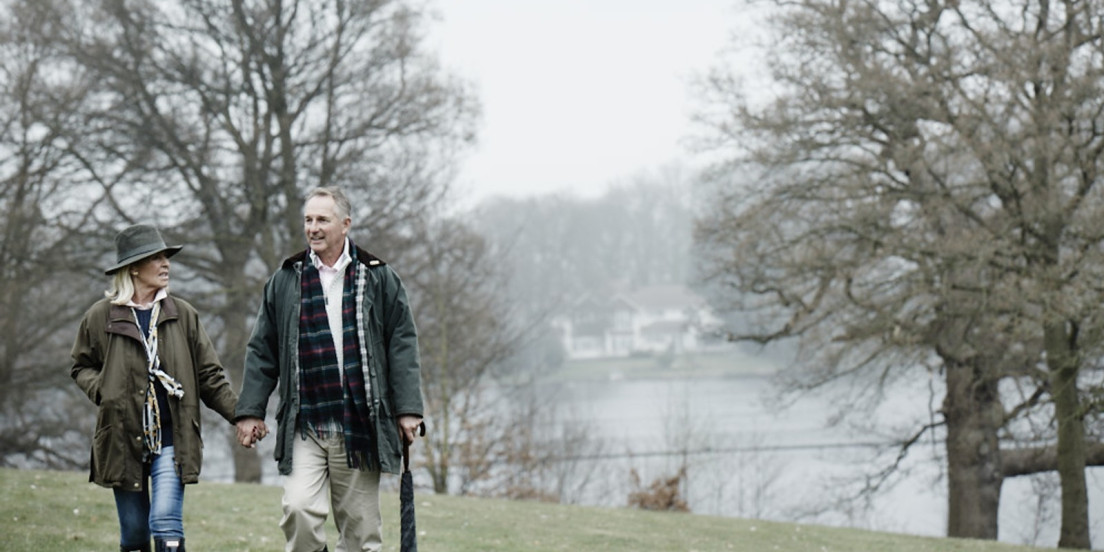Winter Wellbeing Tips For Retirees
02 January 2025

As winter sets in, shorter days and reduced sunlight can begin to impact one's physical and mental well-being. For retirees, these sorts of changes can pose unique challenges. With some mindful adjustments and a proactive approach, however, you can maintain good health and enjoy a fulfilling winter. Here are some practical tips to support your physical and mental well-being during the colder months.
Stay Active Indoors and Outdoors
Maintaining an active lifestyle is crucial for staying healthy during the winter months. While colder temperatures and icy conditions may limit outdoor activities, there are still plenty of ways to incorporate movement into your daily routine. Taking brisk walks on milder days is a great way to get fresh air and boost circulation. Even a short walk around the neighbourhood or a nearby park can improve your mood and help you stay fit.
On days when outdoor activity isn’t possible, indoor exercises such as yoga, pilates or even light stretching can keep your muscles engaged and improve flexibility. Many online classes have been specifically designed for those in their golden years, providing safe and guided workouts in the comfort of your home. Joining community exercise groups like aqua aerobics or walking groups can help you stay physically active and offer opportunities for socialising.
Keep Warm and Comfortable
The winter chill can increase the risks of illness, such as colds, flu, and hypothermia, making it important to prioritise staying warm. Dressing in multiple layers of wool or fleece clothing is an effective way to keep warm, indoors and outdoors. When you venture out, be sure to take a hat, scarf, and gloves to keep you protected from the cold weather.
Keeping your home at a comfortable temperature is equally essential, especially in living spaces where you spend the most time. Simple measures such as draught excluders and thermal curtains can help retain heat, reducing energy costs. Electric blankets are generally very cheap to run and can make a big difference in the evenings and through the night.
Maintain a Nutritious Diet
Eating a balanced diet is fundamental to supporting overall health and boosting the immune system during winter. Incorporating warm meals into your daily routine, such as hearty soups, stews and casseroles, not only keeps you nourished but can also help to maintain your body temperature. These can also be cooked in large quantities and kept for a long while in the freezer, saving you money from doing more regular food shopping. A diet rich in fruits and vegetables is essential, particularly those high in vitamins C and D, such as oranges, broccoli, spinach etc. These nutrients help strengthen your immune system and protect against common winter illnesses.
With the days being so short, getting enough sunlight can be a challenge. Be sure to get enough vitamin D intake through fish or eggs. Vitamin D can also be gained through supplements however check with your GP before taking them. Staying hydrated is often overlooked during winter, but sipping on herbal teas or warm lemon water can keep you refreshed, healthy and warm.
Prioritise Mental Wellbeing
The darker, colder months can take a toll on your mental health, with many retirees experiencing feelings of loneliness or suffering from Seasonal Affective Disorder. Taking proactive steps to care for your mental well-being is as important as your physical health. A lightbox or daylight lamp can mimic natural sunlight and help reduce the effects that the darker time may bring, helping to improve your mood and energy levels.
Staying connected with loved ones is also crucial. Regular video calls, phone conversations or visits with family and friends can lift your spirits and combat feelings of isolation. Additionally, dedicating time to hobbies and interests, such as painting, knitting, gardening or reading, can provide a sense of purpose and keep your mind engaged during long winter days.
Get Vaccinated
Winter is known as the flu season, so protecting yourself from preventable illnesses is essential. The NHS provides free flu vaccines for those over 65 or with underlying health conditions, which can significantly reduce the risk of serious complications. By getting vaccinated, you can safeguard your health and also contribute to the well-being of your community.
Plan for Safe Outdoor Trips
Venturing outside during winter can be refreshing and beneficial for mental health. Plan trips carefully to ensure your safety. Icy pavements and roads pose risks, so wearing sturdy, non-slip footwear is important. If you are concerned about stability, the use of a walking stick or similar aid can provide extra support. Planning shorter trips to nearby destinations, such as a local café or library, can offer a pleasant change of scenery without prolonged exposure to the cold.
Prepare for Winter Challenges
Winter weather can be unpredictable, bringing challenges like power cuts, heavy snowfall or icy conditions. Being prepared can help you navigate these situations more comfortably.
Keeping a supply of non-perishable foods, bottled water, and any necessary medications will ensure that you are ready for any disruptions, should they arise. It is also helpful to have emergency contact numbers for utility providers, neighbours, or family members easily accessible. Simple preparations can offer peace of mind and ensure that you are well-equipped to handle unexpected events.
Winter can be challenging, but with thoughtful preparation and a focus on physical and mental well-being, it’s possible to stay healthy and content. Embrace these tips to prioritise your well-being and make this winter a season to cherish rather than endure.